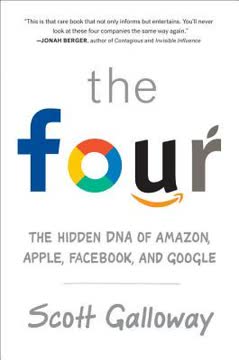Key Takeaways
1. Silicon Valley startups are high-risk ventures fueled by ambition and deception
Startups are business experiments performed with other people's money.
High stakes and uncertainty. Silicon Valley startups operate in an environment of extreme risk and potential reward. Founders often navigate a landscape where the line between ambition and deception is blurred. They must convince investors, employees, and customers of their vision, even when the reality may be far from certain.
Fake it till you make it. This mentality permeates the startup ecosystem, where projecting confidence and success is often seen as necessary for survival. Founders may exaggerate metrics, downplay challenges, or make promises they're not sure they can keep. This culture of "fake it till you make it" can lead to ethical dilemmas and sometimes outright fraud.
Common startup deceptions:
- Inflated user numbers
- Exaggerated revenue projections
- Overstated product capabilities
- Underplayed competition
- Hidden technical challenges
2. The journey from startup to acquisition is fraught with ethical compromises
If we don't create the thing that kills Facebook, someone else will.
Constant reinvention. Startups must continually evolve to stay relevant and competitive. This often means pivoting their business model, sometimes radically changing their product or target market. These pivots can lead to ethical dilemmas, especially when they impact early supporters or deviate from the original vision sold to investors.
Acquisition pressures. As startups grow, the pressure to achieve a successful exit through acquisition intensifies. This can lead to decisions that prioritize short-term gains over long-term sustainability or user interests. Founders may find themselves compromising their initial ideals to make their company more attractive to potential acquirers.
Ethical challenges in the startup journey:
- Balancing user privacy with data monetization
- Maintaining transparency with investors and employees
- Honoring commitments to early users and partners
- Managing the impact of rapid changes on company culture
- Navigating the tension between growth and profitability
3. Facebook's early monetization efforts struggled to match its user growth
A billion times any number is still a big fucking number.
Massive user base, low monetization. Facebook's rapid user growth outpaced its ability to effectively monetize its platform. The company struggled to convert its vast user base into significant revenue, particularly in its early years. This challenge is common among social media platforms that prioritize user acquisition over immediate profitability.
Evolving ad strategies. Facebook experimented with various advertising models, from simple display ads to more complex targeting systems. The company faced the difficult task of balancing user experience with advertiser demands, often leading to suboptimal solutions that satisfied neither group fully.
Facebook's early monetization challenges:
- Low click-through rates on ads
- Resistance to intrusive advertising from users
- Difficulty in proving ROI to advertisers
- Competition from established digital ad platforms
- Balancing privacy concerns with data-driven targeting
4. Tech companies often prioritize growth over profitability and user privacy
Facebook is the New York Times of You, Channel You, available for your reading and writing, and to everyone else in the world as well, from the Valley VC to the Wall Street banker to the Indian farmer plowing a field.
Growth at all costs. Many tech companies, especially in their early stages, focus almost exclusively on user growth and engagement metrics. This "growth hacking" mentality can lead to decisions that prioritize short-term gains over long-term sustainability or user interests.
Data as currency. User data has become an invaluable asset for tech companies, driving both product development and monetization strategies. This has led to increasingly sophisticated data collection and analysis practices, often pushing the boundaries of user privacy and consent.
Consequences of prioritizing growth over other considerations:
- Erosion of user trust
- Regulatory scrutiny and potential fines
- Neglect of core product improvements
- Creation of addictive product features
- Difficulty in pivoting to sustainable business models later
5. The IPO process reveals the true nature of a company's valuation and leadership
Capitalism is the worst form of managing the means of production, except for yet worse ways.
Market reality check. The IPO process forces companies to open their books and face public scrutiny, often revealing discrepancies between private valuations and market realities. This can be a sobering experience for founders and early employees who may have unrealistic expectations about their company's worth.
Leadership under pressure. The transition from private to public company puts immense pressure on leadership teams. The focus shifts from long-term vision to quarterly results, often leading to changes in company culture and decision-making processes. Leaders must navigate new stakeholder demands while maintaining the company's core mission and values.
Key aspects of the IPO process:
- Intense regulatory scrutiny
- Pressure to meet market expectations
- Shift in company culture and priorities
- Potential for leadership changes
- Newfound wealth for early employees and investors
6. Corporate culture in tech can be cult-like, fostering both innovation and dysfunction
Facebook was not originally created to be a company. It was built to accomplish a social mission—to make the world more open and connected.
Missionaries and mercenaries. Tech companies often cultivate a sense of mission that goes beyond mere profit-making. This can create a powerful, motivated workforce but can also lead to a cult-like atmosphere where dissent is discouraged and work-life balance is sacrificed.
Perks and golden handcuffs. Tech companies are known for lavish perks and potentially lucrative stock options. While these can create a loyal and hardworking workforce, they can also trap employees in toxic environments and discourage critical thinking about the company's broader impact.
Characteristics of tech company cultures:
- Strong emphasis on company mission and values
- Intense work schedules and expectations
- Youthful, informal work environments
- Significant financial incentives tied to company success
- Pressure to conform to company norms and beliefs
7. Success in Silicon Valley often comes at a personal and ethical cost
The most important decision in a startup, as in life, is picking a partner. It will determine everything that comes after.
Relationship strain. The all-consuming nature of startup life can take a severe toll on personal relationships. Founders and early employees often sacrifice family time, friendships, and personal well-being in pursuit of success.
Ethical compromises. The pressure to succeed in a highly competitive environment can lead to ethical compromises. This might involve misleading investors, exploiting user data, or engaging in unfair competitive practices. The justification is often that the ends (building a successful company) justify the means.
Personal and ethical costs of startup success:
- Burnout and mental health issues
- Strained or failed personal relationships
- Loss of personal identity outside of work
- Compromised personal values
- Difficulty reintegrating into "normal" life post-exit
8. Data is the new currency, and privacy is its casualty in the digital age
Facebook doesn't sell your data; it buys it.
Data economy. Personal data has become an incredibly valuable commodity in the digital age. Companies like Facebook have built entire business models around collecting, analyzing, and monetizing user data. This has led to unprecedented insights into human behavior but also raises serious privacy concerns.
Privacy trade-offs. Users often willingly trade their privacy for convenience or free services. However, many are unaware of the full extent of data collection and its potential uses. Tech companies walk a fine line between providing personalized experiences and respecting user privacy.
Aspects of the data economy:
- Sophisticated data collection methods
- Complex data sharing agreements between companies
- Use of AI and machine learning to analyze user behavior
- Targeted advertising based on personal data
- Potential for data breaches and misuse
9. The line between genius and madness is thin in the world of tech entrepreneurship
Mark Zuckerberg is a genius.
Visionary thinking. Successful tech entrepreneurs often possess a unique ability to see possibilities others don't. This visionary thinking can lead to groundbreaking innovations but can also manifest as seemingly irrational or obsessive behavior.
High-stakes decisions. The fast-paced nature of the tech industry requires leaders to make high-stakes decisions with limited information. This can lead to both spectacular successes and catastrophic failures, often hinging on a single choice or insight.
Characteristics of successful tech entrepreneurs:
- Ability to identify and solve non-obvious problems
- Willingness to take significant risks
- Intense focus and work ethic
- Charismatic leadership style
- Ability to pivot and adapt quickly
10. The pursuit of wealth in tech can lead to a loss of meaning and perspective
There are only two inflection points in personal wealth, two points where your life really changes. One is the aforementioned fuck-you money, the other is the even loftier fuck-the-world money.
Wealth as a scorecard. In Silicon Valley, personal wealth often becomes a proxy for success and self-worth. This can lead to a never-ending pursuit of more, even after achieving financial security. The focus on monetary success can overshadow other important aspects of life and personal fulfillment.
Distorted reality. The extreme wealth concentrated in tech hubs creates a distorted sense of reality. What seems like a normal lifestyle or expenditure in Silicon Valley can be completely out of touch with the rest of the world. This can lead to a loss of perspective and empathy for those outside the tech bubble.
Consequences of wealth-focused culture:
- Neglect of personal relationships and non-work pursuits
- Constant comparison and status anxiety
- Difficulty finding meaning beyond financial success
- Ethical compromises in pursuit of wealth
- Disconnection from broader societal issues and concerns
Last updated:
FAQ
What's Chaos Monkeys about?
- Silicon Valley Insights: Chaos Monkeys offers a firsthand account of the chaotic and unpredictable nature of the tech industry, focusing on the author's experiences at Facebook and the startup AdGrok.
- Personal Journey: It chronicles Antonio García Martínez's transition from Wall Street to Silicon Valley, highlighting the challenges and triumphs he faced in the startup world.
- Cultural Commentary: The book critiques Silicon Valley culture, exploring themes of greed, ambition, and the harsh realities of startup life.
Why should I read Chaos Monkeys?
- Authentic Perspective: The book provides an insider's view of the tech industry, offering a unique understanding of Silicon Valley's dynamics.
- Engaging Storytelling: García Martínez's humorous and insightful writing makes complex topics accessible and entertaining.
- Valuable Lessons: Readers can learn important lessons about entrepreneurship, investment, and the tech ecosystem, making it a must-read for aspiring entrepreneurs.
What are the key takeaways of Chaos Monkeys?
- Reality of Startups: Startups are fraught with uncertainty and risk, and success is not guaranteed. Many fail due to a lack of product-market fit or internal conflicts.
- Importance of Networking: Building relationships is crucial in the tech industry, as networking can open doors to funding and partnerships.
- Navigating Challenges: Resilience and adaptability are essential for entrepreneurs to pivot and respond to market demands while managing team dynamics.
What are the best quotes from Chaos Monkeys and what do they mean?
- “You go to war with the army you have.”: Highlights the importance of making the best of available resources and adapting quickly in startups.
- “Starting a company is like eating glass and staring into the abyss of death.”: Captures the intense pressure and fear in entrepreneurship, yet many still choose this path.
- “The only thing you got in this world is what you can sell.”: Emphasizes the transactional nature of business and the importance of value creation.
How does Chaos Monkeys depict the culture of Silicon Valley?
- Ambition and Competition: Silicon Valley is portrayed as a highly competitive environment driven by relentless ambition.
- Networking and Relationships: The significance of networking and building relationships is emphasized as crucial for success.
- Critique of Tech Culture: The book critiques the superficiality and moral ambiguity of Silicon Valley, questioning the ethical implications of its practices.
What challenges does the author face while building AdGrok?
- Technical Hurdles: Developing a scalable and effective product in a competitive landscape posed significant challenges.
- Team Dynamics: Interpersonal conflicts and differing visions within the team hindered progress.
- Legal Issues: Legal battles, such as the lawsuit from Adchemy, added stress and uncertainty to the startup journey.
How does Chaos Monkeys illustrate the concept of product-market fit?
- Definition of Product-Market Fit: It refers to the alignment between a product and the needs of its target market, crucial for success.
- Importance of Iteration: Continuous iteration and feedback are necessary to refine the product based on user responses.
- Consequences of Missing Fit: Failing to achieve product-market fit can lead to stagnation and eventual failure.
What insights does Chaos Monkeys provide about venture capital?
- Investor Dynamics: The book explores the relationship between entrepreneurs and venture capitalists, detailing funding decisions and power dynamics.
- Valuation Challenges: It delves into the complexities of startup valuations and the impact of investor expectations on company direction.
- Role of Angels and VCs: The narrative distinguishes between angel investors and venture capitalists, emphasizing the importance of aligning with the right investors.
How does Chaos Monkeys address the theme of failure in Silicon Valley?
- Realistic Portrayal: The book discusses the high failure rate of startups, illustrating that failure is common in the tech industry.
- Learning from Mistakes: Emphasizes the importance of learning from failures and using them as stepping stones to future success.
- Cultural Acceptance of Failure: Highlights how failure is often viewed as a badge of honor in Silicon Valley, encouraging risk-taking.
What role does personal sacrifice play in Chaos Monkeys?
- Impact on Relationships: The author's commitment to AdGrok affected his personal relationships, highlighting the sacrifices made for success.
- Work-Life Balance: The demands of building a company can lead to neglecting personal well-being and relationships.
- Emotional Toll: Entrepreneurship involves stress, anxiety, and burnout, emphasizing the need for resilience and support systems.
What is the significance of Facebook Exchange (FBX) in Chaos Monkeys?
- Real-Time Bidding: FBX allowed advertisers to bid for ad space in real-time, using Facebook's vast user data.
- Incremental Revenue: It generated significant new revenue for Facebook, showcasing the potential of programmatic advertising.
- Challenges Faced: Despite its success, FBX faced internal resistance and competition, highlighting the complexities of innovation in large organizations.
How does Chaos Monkeys reflect on the future of digital advertising?
- Programmatic Advertising Growth: The book predicts the continued rise of programmatic advertising as a dominant force in the industry.
- Data-Driven Strategies: Future advertising will rely on data analytics and user insights to drive marketing decisions.
- Ethical Considerations: Balancing profit motives with user privacy will be a critical challenge for companies as the industry evolves.
Review Summary
Chaos Monkeys receives mixed reviews, with readers divided on the author's writing style and personality. Some praise the insider's perspective on Silicon Valley and tech startups, finding it informative and entertaining. Others criticize the author's arrogance, misogyny, and self-aggrandizing tone. The book offers insights into ad technology, Facebook's inner workings, and startup culture. While some appreciate the candid and irreverent approach, others find it offensive and narcissistic. Overall, readers agree it provides a unique glimpse into the tech world, though opinions vary on its literary merit and the author's character.
Similar Books










Download PDF
Download EPUB
.epub digital book format is ideal for reading ebooks on phones, tablets, and e-readers.




